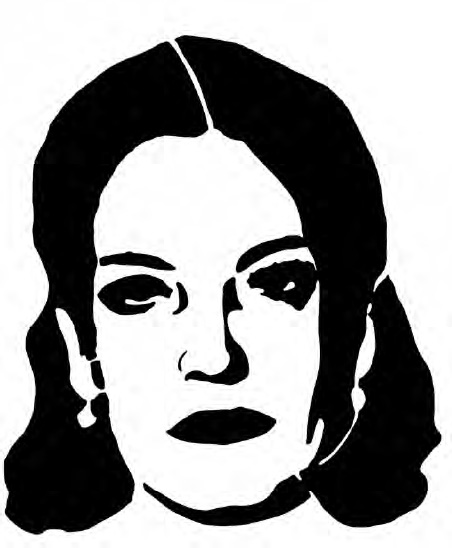

Lolita Lebrón was a political dissident and longterm prisoner working for a liberated Puerto Rico. She was born in Lares, Puerto Rico, to a family of poor cigar workers. Two years before her birth, the Jones-Shafroth Act made all Puerto Ricans citizens of the United States. Spanish-speaking children were required to recite the United States’ Pledge of Allegiance in class and read textbooks in English. Lolita remembers young children being forced to wet their pants if they didn’t ask permission to use the bathroom in English. This, Lolita said, was a form of U.S. terrorism.
Intense battles between Puerto Rican nationalists and the colonial police were a feature of Lolita’s adolescence. As she reached adulthood, a massive sterilization campaign coerced women into having “la operación,” often without the knowledge that it was a permanent form of contraception: fewer women with children meant more women available to work in the factories operated by U.S. corporations in Puerto Rico.
In the 1940s, Lolita moved to New York and was confronted with signs saying “No Blacks, No Dogs, No Puerto Ricans.” She worked as a seamstress during the day and went to school at night. Lolita was briefly married and had a son, whom she sent to her mother, who was already caring for Lolita’s daughter in Puerto Rico.
Lolita became a follower of Dr. Pedro Albizu Campos, leader of the Puerto Rican Nationalist Party, and attended the party’s meetings in New York. She corresponded with Albizu Campos while he was in prison. As a result he chose Lolita, a woman he had never met, to lead an attack on the U.S. House of Representatives on March 1, 1954, the anniversary of the Jones-Shafroth Act. Lolita was responsible for every detail. “I had all the secrets, all the plans. Me and me alone.”
Never expecting to make it out alive, Lolita and her three comrades purchased one-way tickets to Washington. In the visitors’ gallery above the chamber in the House of Representatives, she stood up, shouting “¡Viva Puerto Rico Libre!” (Long Live a Free Puerto Rico!) and unfurled a Puerto Rican flag. The group then opened fire with automatic pistols, wounding five lawmakers and one representative. After her arrest, Lolita yelled “I did not come to kill anyone, I came to die for Puerto Rico.” The newspapers weren’t quite sure what to make of Lolita, referring to her alternately as a “terrorist leader” and a “trim divorcee.”

The four comrades were charged with attempted murder and sentenced to death, later commuted to life imprisonment. Both of Lolita’s children died while she was in prison. After serving twenty-five years, Lolita was pardoned by President Carter in 1979. Following her release, she appeared before cheering crowds at rallies in Chicago and New York and was welcomed as a hero in Puerto Rico by various independence groups.
In 2001, she was sentenced to sixty days in prison for trespassing in restricted areas on Vieques, a Puerto Rican island then occupied by the U.S. Navy. Such protests resulted in the U.S. Navy leaving the island in 2003. In 2005, she was one of thousands who took to the streets denouncing the FBI assassination of liberation hero Filiberto Ojeda Ríos. She advised the people to fight strategically against the imperialists who seek to silence and defeat them. On International Women’s Day 2008, Lolita gave another rallying speech, telling the hundreds of women gathered, “We want everyone to know that women in Puerto Rico support, demand and are fighting for the independence of Puerto Rico.”
“You must know the facts, the United States will repress anyone that tries to assert their birthright to nationhood.”